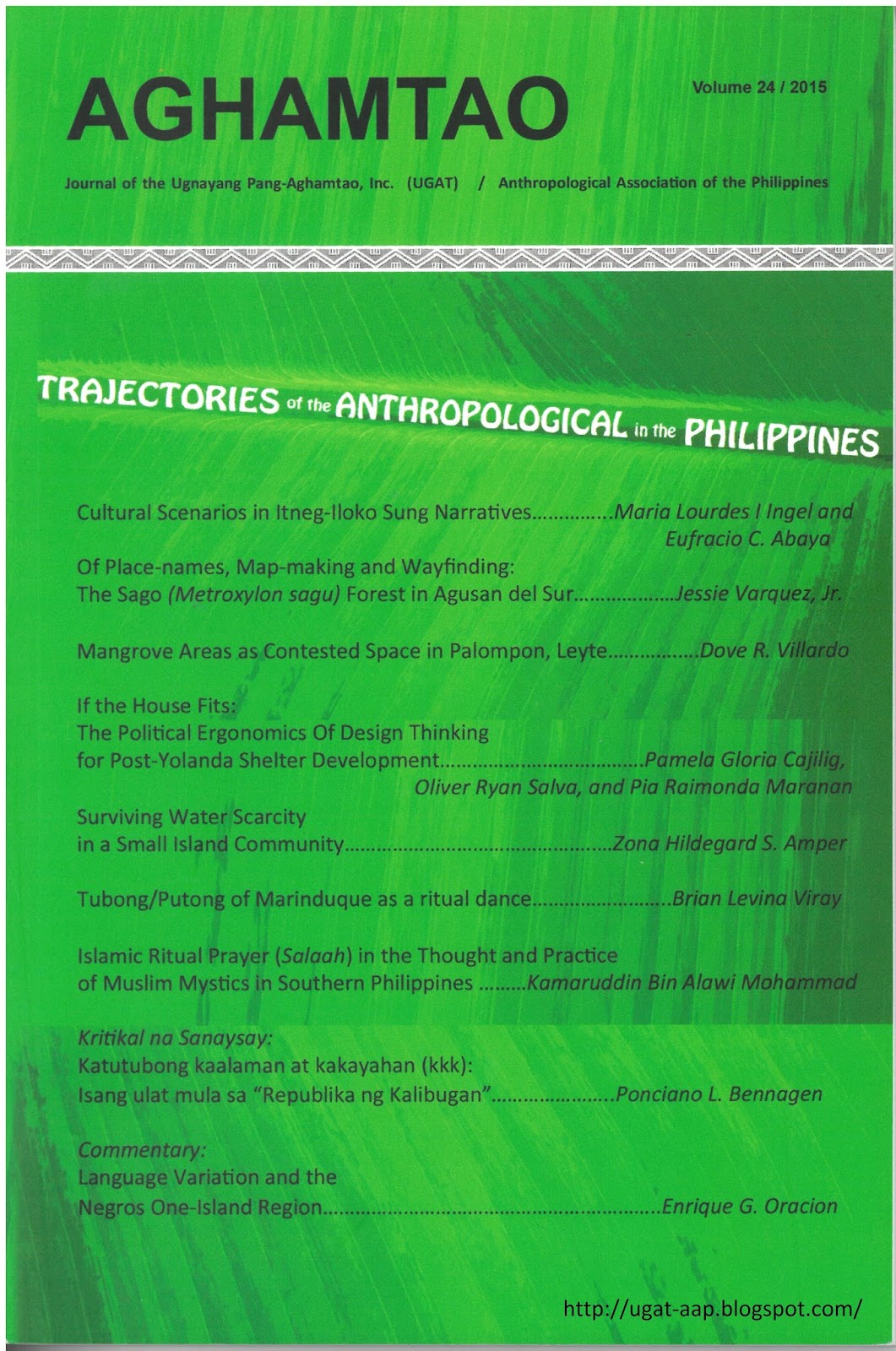04 Dec If the House Fits: The Political Ergonomics of Design Thinking for Post-Yolanda Shelter Development
Pamela Gloria Cajilig, Oliver Ryan Salva, Pia Raimonda Maranan
Aghamtao (vol 24)
Abstract
The notion of design thinking has become increasingly fundamental to the understanding and practice of design. On the one hand, business practitioners emphasize its meaning as a replicable method for managing practical design projects in a broad sense, while design scholars, on the other hand, discuss the concept in light of ways of knowing that bring about design ability. In this paper, cultural analysis is made central to understanding the applications of design thinking, more specifically as utilized in developing disaster-resilient shelter possibilities in and with coastal communities in the Visayas that were affected by Typhoon Yolanda (Haiyan) in 2013. Building on Langdon Winner’s notion of political ergonomics, this paper looks at how design thinking output, in the form of shelter prototypes, can materialize, reconcile, or provoke conflicting subjectivities across multiple actors involved in disaster rehabilitation efforts, and how these subjectivities, in turn, shape designed output.We maintain that disaster-related designed output are political artifacts that emphasize how sociocultural relations in which they are embedded may both frustrate or further design processes and the various agenda that underpin these. This project aims to contribute to the growing literature in the field of design anthropology by being conscious of the workings of power that constitute the creation of artifacts that we use in our lives.

Keywords: Design thinking, design research, design anthropology, humanitarian architecture, humanitarian engagement, disaster studies, development
Interested parties may purchase the issue at the Philippine Social Science Center. Contact us for more information.

